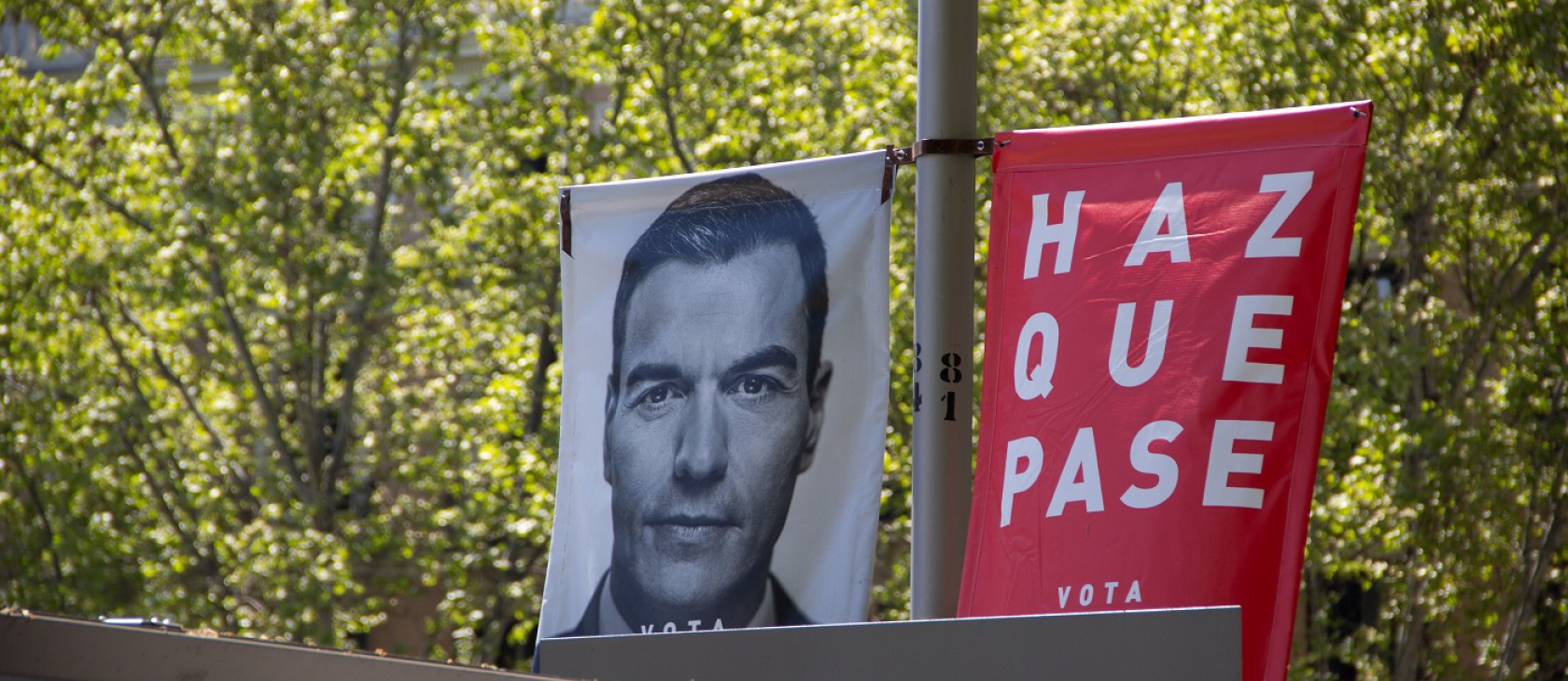On April 28, Spain held its general election for national Congress and Senate, as well as an election for the regional Corts in Valencia. The current president, socialist Pedro Sánchez, anticipated elections after his partners, the Catalan nationalists, rejected his budget in February.
How is Spanish Parliament divided?
Spain has a bicameral parliamentary system. The lower chamber is the Congress of Deputies, where all 350 seats were contested, and the upper chamber is the Senate, in which all but 58 of its 266 members faced an election.
In both cases, the legislators are chosen by citizens. However, deputies are chosen from a “closed and restricted party list,” while senators are elected directly. Voters get to vote for one candidate for each senate seat in their region – three in most areas. In autonomous regions, senators are designated by regional parliaments.
The lower chamber has 52 constituencies - one per province and two others for the autonomous cities of Ceuta and Melilla. The Senate is composed of 59 constituencies that belong to the 47 provinces in the peninsula, 10 for the islands, and one per autonomous city.
How do general elections to the Spanish Parliament work?
Spain's general election follow a single round of voting, with results based on the D’Hondt method of proportional representation. Candidates or parties must receive at least three percent of all valid votes (including those left blank), and then parties are assigned seats by dividing the total number of parties by the number of available seats. This system favors large parties.
Ceuta and Melilla's seats go to the candidate with the largest vote total.
If a party does not obtain an absolute majority of at least 176 seats during a presidential election, it will have to negotiate a coalition government with other parties and deputies.
What about the candidates?
For the first time since the end of Francisco Franco's death, there were five important parties in this election. Typically, the center-right People’s Party (PP) and leftist Socialist Party (PSOE) have dominated, sometimes with the support of Basque and Catalan nationalists.
However, for this election, apart from communists from Podemos and Ciudadanos (the “Citizens” party, or “The C's”), who joined political mainstream four years ago, there will be a new participant: the anti-establishment right-wing party Vox, which erupted onto the scene last December by winning 12 seats in Andalusia's regional parliament.
What were the results of the April 28, 2019, general election?
In the Congress of Deputies, the results were as follows:
PSOE – 122 seats (38 more than in 2016).
PP – 66 seats (71 fewer than in 2016)
The C’s – 57 seats (25 more than in 2016)
Podemos – 42 seats (29 fewer than in 2016)
Vox – 24 seats (from zero two years ago)
Catalan nationalists (ERC and JxCAT) – 15 and seven seats, respectively
Basque nationalists (PNV and Bildu) – 10 seats
Navarra Suma – two seats
Canarian Coalition – two seats
Coalició Compromís – one seat
Regionalist Party of Cantabria – one seat
Meanwhile in the Senate, socialists from PSOE have reached an absolute majority.
In light of these results, Pedro Sánchez will continue governing Spain. He may negotiate a coalition with communists and secessionists from Catalonia and the Basque Country.
The C’s might be an alternative partner. But this seems unlikely, because the party's base, which now consists mainly of center-right conservatives, would not forgive the party for empowering a socialist government.
How should pro-liberty Christians react?
For liberty-minded Christians, this was the worst possible outcome. Socialists from PSOE and communists from Podemos will increase taxes and the bureaucratic burden of government regulation, while debt levels increase anyway. Their coalition will accelerate these trends faster than the social democrats of PP and the C’s.
Sanchez will promote gender ideology and “advance” the culture of death via the pending legalization of euthanasia. Abortion laws will remain the same or be made even more lax.
PSOE and Podemos will also continue the promotion of multiculturalism. They remain a welcoming home for Muslim migrants arriving largely from Northern Africa. Catholic religious liberty will be endangered by means of intolerant secularism and pro-LGTBI regulations.
These problems have no short-term political solution. Civil society must remain vigilant and engaged in the struggle for liberty, human dignity, and tradition against the relativist nihilism of Marxist influences.




